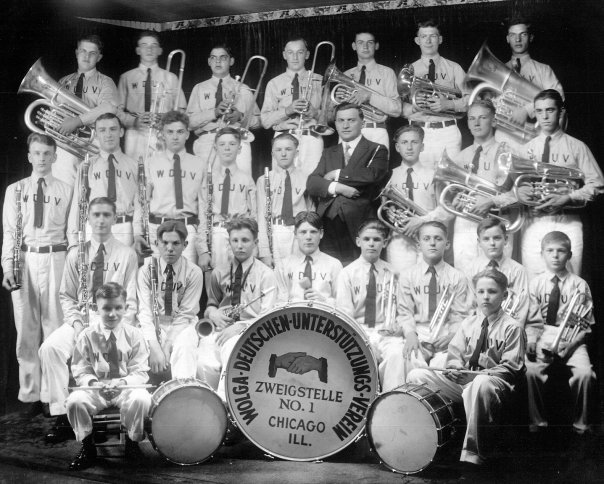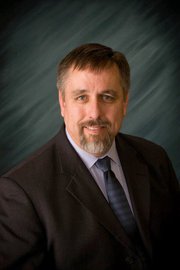Celebrating the 250th Anniversary of the Founding
of the Volga German Colonies of
Basel, Bettinger, Boisroux, Biberstein, Enders, Ernestinendorf, Hockerberg,
Hummel, Kaneau, Kind, Krasnoyar, Meinhard, Näb, Nieder-Monjou, Orlovskaya,
Paulskaya, Philippsfeld, Reinwald, Schaffhausen, Susannental, Urbach, and Zürich
Saturday, 22 July 2017
Chicago, Illinois
The Volga German Institute at Fairfield University will be hosting a day-long celebration of the 250th Anniversary of the Founding of the Volga German Colonies of Basel, Bettinger, Boisroux, Biberstein, Enders, Ernestinendorf, Hockerberg, Hummel, Kaneau, Kind, Krasnoyar, Meinhard, Näb, Nieder-Monjou, Orlovskaya, Paulskaya, Philippsfeld, Reinwald, Schaffhausen, Susannental, Urbach, and Zürich in Chicago, Illinois, on Saturday, 22 July 2017.
The public is invited to attend. Space is limited, so register early to get a seat.

Source: George Valko.
Registration
Advance Registration: $50 per person if registration is received on or before 7 July 2017 [$10 for children 12 & under].
Regular Registration: $75 per person for registration received after 7 July 2017 or at the door [$10 for children 12 & under].
Registration includes all programs for the day and lunch.
* * * To register children, please call Jill at 203.254.4000 x.2648. * * *
To register & pay by credit/debit card, please follow this link for Online Registration.
If you prefer to pay by check, print the Registration Form, and mail it along with your check. To qualify for the Early Registration rate, payment must be received by July 7.
If you have questions, please call Jill at 203.254.4000 x2648.
[Note: There is no discount for partial attendance of this event. Notice of cancellation on or before 7 July 2017 will receive a full refund; after 7 July 2017 will receive no refund.]
Location
Registration and all sessions will be held on the Lake Shore campus of Loyola University on the 4th floor of the Richard J. Klarchek Information Commons overlooking Lake Michigan. (Campus Map - Building 17)
Parking: On-site parking is available for $7 for the day. (Campus Map)

Speaker
Speaker for the workshop will be Dr. Brent Mai. Dr. Mai serves as the Dean of Libraries and University Librarian at Fairfield University in Fairfield, Connecticut, where he also leads the Volga German Institute. Dr. Mai has spoken world-wide on many topics related to Volga German history and culture, authored dozens of articles and several books, and translated hundreds of documents. Dr. Mai, whose father's side is Volga German, grew up in Western Kansas, graduated from Bethany College in Lindsborg, and continued graduate studies at George Washington University, the University of Texas at Austin, and Vanderbilt University. He came to Fairfield from Concordia University in Portland, Oregon, where he had been the founding director of the Center for Volga German Studies.
Schedule for Saturday, 22 July 2017
| 8:30 - 9:00 | Registration & Visiting |
| 9:00 - 9:45 | Session 1: Introduction to the Volga Germans and their Heritage
Everyone starts on a different page when it comes to their knowledge of who the Volga Germans are and how they came to be in Russia. This session will bring all attendees to the same place in that understanding - and we'll continue our exploration from there.
|
| 10:00 - 10:45 | Session 2: The Geography of the Volga Germans
The Volga German region in Russia has a fascinating geographical history, both physically and politically. The boundaries of the regions in which the colonies are located changed numerous times. Each Volga German colony had many names during the past 250 years. Add in two languages (Russian & German) and two alphabets (Cyrillic & Latin), and more complications arise in understanding how one Volga German location relates to another. The trek of the Volga Germans around the world has created an interesting study of migration patterns. Today's Volga German descendants today speak a multitude of languages including German, Russian, English, Spanish, Portugese, Kazakh, and Uzbeck.
|
| 11:00 - Noon | Session 3: Volga German Settlement of the Chicago Area
Volga Germans began settling in the Chicago area in 1888 where they settled in no fewer than 12 Chicago neighborhoods: Bellwood-Maywood, Dolton, Dunning, Humboldt Park, Jefferson Park, Lakeview, Lansing, Melrose Park, Riverdale, Roosevelt & Crawford, Rothammel, and Thornton. Today, metropolitan Chicago boasts the largest urban population of Volga German descendants in the United States. During this session, we will examine some of these neighborhoods and the role that Volga German immigrants and their descendants have played in their development.
|
| Noon - 1:00 | Lunch
Lunch will be provided for those who pre-register.
|
| 1:00 - 2:00 | Session 4: History of Basel, Bettinger, Boisroux, Biberstein, Enders, Ernestinendorf, Hockerberg, Hummel, Kaneau, Kind, Krasnoyar, Meinhard, Näb, Nieder-Monjou, Orlovskaya, Paulskaya, Philippsfeld, Reinwald, Schaffhausen, Susannental, Urbach, and Zürich
All of these colonies were founded in 1767, 250 years ago, on the bleak Russian steppe by immigrants from Western Europe. These hearty souls survived and thrived. What did those colonies look like then? What happened to them and their inhabitants over the years? Does anything remain of them now?
|
| 2:00 - 3:00 | Session 5: The Western European Origins of the Volga Germans
When the Volga German colonies were founded (1764-1772), Germany did not exist. Rather, the ethnic Germans were living in a plethora of jurisdictions, kingdoms, duchies, and independent cities - many without contiguous borders. Today's Germany did not exist until these areas were unified in 1871 by Otto von Bismarck. Furthermore, not all Volga Germans were actually German. French, Italian, Polish, Dutch, British, Austrian, Swiss, and Scandinavian colonists also lived among them. During this session, we'll explore the origins of the Volga German immigrants who settled in Basel, Bettinger, Boisroux, Biberstein, Enders, Ernestinendorf, Hockerberg, Hummel, Kaneau, Kind, Krasnoyar, Meinhard, Näb, Nieder-Monjou, Orlovskaya, Paulskaya, Philippsfeld, Reinwald, Schaffhausen, Susannental, Urbach, and Zürich.
|
| 3:00 - 4:00 | Session 6: The 1921 Famine - A Story of Resilience
2017 marks the 100th Anniversary of the Bolshevik Revolution in Russia. Most Volga Germans had been supporters of the Tsar during the Revolution and consequently faired poorly during the early Soviet Years. In this session, we'll examine the causes of the 1921 Russian famine, and its implications for the Volga Germans. We'll also unpack the unpresidented and herioc efforts of those Volga Germans and their descendants living in North and South America to relieve the suffering of their comrades back in the Russian homeland.
|
| 4:00 - 5:00 | Session 7: The 1941 Deportation and Today's Volga German Descendants
Hitler's invasion of Russia in June of 1941 was the beginning of the end for the Volga Germans who remained in Russia. An edict of 28 August 1941 called for their deportation to Asiatic Russia and by the 3rd week in September, the entire region had been emptied of the Germans who had lived there for 177 years. This session will explore this journey and uncover what has become of the Volga Germans of today.
|
Area Hotels
There are a number of hotels in the vicinity of the Loyola University Lake Shore Campus (click here for a list).